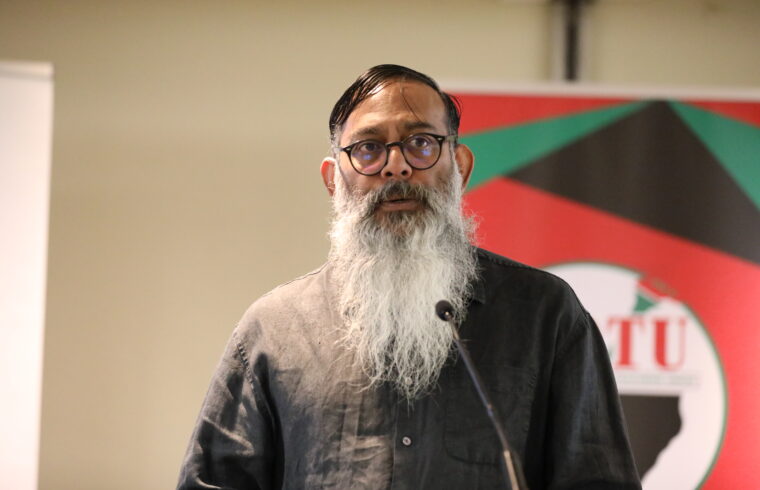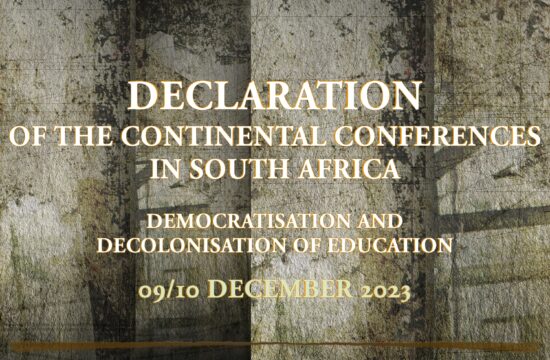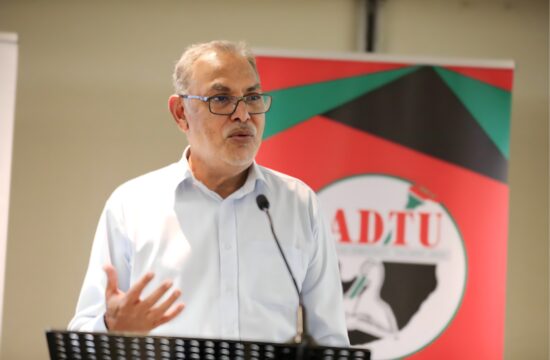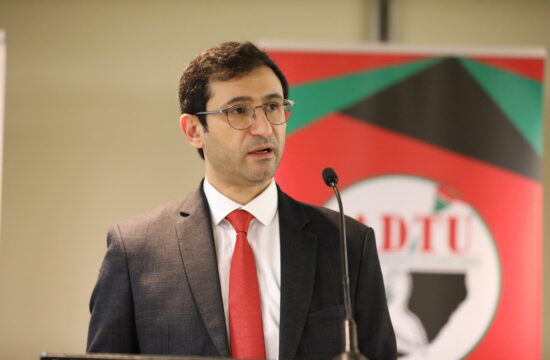Prof. Rasigan Maharajh
World systems are deeply entangled within increasing and escalating polycrises. Our precarity as a species-being demands that we critically analyse our location within our contemporary conjuncture and recognise the contradictions underpinning the manifestations of despair, deprivation, and destitution experienced by the global majority of our nearly 8.1 billion people at the end of the 2,023rd year of our common era. In How Europe Undeveloped Africa, Walter Rodney argued that the “… connection between Africa and Europe from the fifteenth century onwards served to block this spirit of technological innovation both directly and indirectly” (Rodney, 1972). Samir Amin introduced the concept of an ‘imperialist rent’ which established, maintained, and reproduced unequal exchanges and ensured the flow of resources from the colonised territories to enrich the countries of the core capitalist economies (Amin, S. 1976). Recent scholarship has not only served to validate the subjugation of the global majority to the collective west, but also begun to quantify the exploitation and expropriation of value being undertaken. Hickel and colleagues studies the period between 1960 and 2018 and found that “…the global North (‘advanced economies’) appropriated from the South commodities worth $2.2 trillion in Northern prices — enough to end extreme poverty 15 times over. Over the whole period, drain from the South totalled $62 trillion (constant 2011 dollars), or $152 trillion when accounting for lost growth. Appropriation through unequal exchange represents up to 7% of Northern GDP and 9% of Southern GDP” (Hickel et al, 2021).
It is therefore imperative that our appreciation of article 26 of the Human Rights Charter of the United Nations at its 75th anniversary derives from a materialist rendition of history and a critical understanding of our contemporary conjuncture within polycrises that characterises our international political economy, its division of labour, and the changing dynamics of labour processes through which value is created. The three component sub-clauses of article 26 are in serious need to be updated and reframed within our current circumstances and the international balance of class forces. Advocacy of a revitalised transnational solidarity should foreground the aspirations of the global majority, redress the epistemicide of colonial and corporate state capture, and promote the praxis of decoloniality. Pluripolarity is emergent in our times of polycrises and the threat of ecological extinction. Rethinking the form, function, and content of education and training provides the possibilities of progressive intergenerational learning and teaching. A better world for all must arise against the genocidal tendencies of late-stage capitalism and the extinction-orientated hubris of furthering capital accumulation through the commodification of all life and living systems. Other world systems are possible in thoughts and deeds. As argued by Steven Bantu Biko: “The most potent weapon in the hands of the oppressor is the mind of the oppressed” (Biko, 1978). Transforming article 26 of the UN’s Human Rights Charter should also empower us all towards defending the global knowledge commons and reclaiming a people’s science and technology from further capitalist enclosure and appropriation though intellectual property regimes.
References
Amin, S. 1976. Unequal Development: An Essay on the Social Formations of Peripheral Capitalism, Monthly Review Press, New York.
Amin, S. 2011. Eurocentrism: Modernity, Religion, and Democracy: A Critique of Eurocentrism and Culturalism, Pambazuka Press, Cape Town [2nd Edition].
Biko, S.B. 1978. I Write What I Like, Heinemann, Johannesburg.
Hickel, J.; Sullivan, D.; and Zoomkawala, H. 2021. Plunder in the Post-Colonial Era: Quantifying Drain from the Global South Through Unequal Exchange, 1960–2018, New Political Economy, 26(6): 1030-1047.
Maharajh, R. 2021. Advancing Sustainable Futures for All: 21st Century Public Engagement and Mission-orientated Research, Global Research Council, London.
Maharajh, R.; and Tivana, S. 2023. Ecocide or Socialism: Ecological Challenges and Neoliberal Capitalist Constrains on Radical Transformation, in Balfour, R.J. [editor] Mzala Nxumalo, Leftist Thought and Contemporary South Africa, Jacana, Johannesburg.
Rodney, W. 1972. How Europe Underdeveloped Africa, Verso, London [2018 edition].







